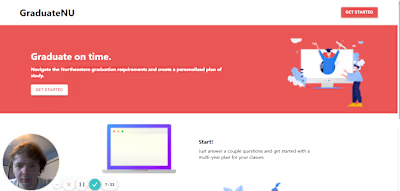The State of the Creative Independent
We're in the midst of the third - and perhaps final - stage in the revolution of independent work.
The first came with the rise of companies willing and interested in crowdsourcing their efforts. Starting with websites like Amazon's Mechanical Turk and various survey farms, companies began to seek ways to outsource cheap, manual labor that was difficult to automate. Whether an organization needed lots of participants to opt into psychological studies or to label images for machine learning algorithms, individuals were ready to exchange their time for a series of ten-cent tasks. Companies like Uber, Lyft, and Doordash took this a step further, allowing anyone with a car to effectively operate their own taxi or delivery service should they so choose, shifting the fundamental choice to provide labor from being a company-to-company effort to a negotiation between a company and an individual with expertise.
The second came with the realization of remote work and the transfer of technological power to individuals. As initial video calling efforts like Skype progressively evolved into the Microsoft Teams, Google Docs and Zooms of today, a proliferation of remote working technologies were developed to enable anyone to easily collaborate and sync from anywhere in the world. With the development of cloud infrastructure, individuals no longer need to bootstrap a server farm to start a company. Today, the five minutes it takes to provision and start up a cloud server is inconsequential! With the progression of hardware, too, came great advancements; independents interested in 3D rendering or 4K video creation, rather than having to fund tens of thousands of dollars in gear and processing power to perform their day to day tasks, now need to look no further than a smartphone and a Macbook to produce professional quality videos, graphics and animations. There are no longer substantial limitations to work that can be done with personal computing.
The third -- and where we are today -- is providing ultimate individual agency to independents, creators, and experts. As all of the frameworks that have enabled and popularized remote work, whether synchronous or asynchronous, have become essential parts of product development work in our society, we're seeing a new type of agency arise. Individuals no longer need companies to prop them up or fund them to find professional success. True to Kevin Kelly's "1,000 True Fans" (and Li Jin's observant follow-up), self employment relationships have shifted directly to person to person interaction, and there's lots of evidence to show for this. Early creator economies like Youtube have already minted many millionaires. Services like Etsy and Twitch allow anyone to easily configure and operate at an individual to individual level for specific ideas and roles, providing services in exchange for purchases, fans and donations.
These services do have their flaws - they only accomodate for specific creative niches. Youtube videos are fundamentally restricted to entertainment or education, just as Etsy stores are largely limited to arts and crafts and Twitch streamers are limited to gaming and chatting. Payment services that attempt to masquerade as networking tools like Shopify, Stripe and Patreon won't realize social features to empower truly collaborative work; though they do allow for communication, they don't enable relationships so much as broadcasts from creator to consumer, never truly enabling individuals and independents to work on or at the same level as one another.
This tide, though, is quickly shifting as creators look to establish closer relationships with others in their social spheres. Rudimentary efforts like paid Slack workspaces and applications for Discord channels successfully connect serious independents, but they still have to pull in other services to connect to opportunities. Twitter and Instagram networking feel the friction of cross-linking to LinkedIn profiles and portfolio pages, email referrals to mutual acquaintances, and third party payment platforms. These cobbled-together communities, as fragmented as they are, are showing a true desire for platforms dedicated to connecting people casually and professionally. The current webs spun across the internet to connect independents with their work, loosely tying together personal websites, social networking services and chat platforms are fraying -- and with them go the professional relationships built upon these webs.
In 2021, new players are stepping up to build upon the delicate foundations of these networks. Rather than straining existing technologies and relationships with another layer of indirection, cohesive spaces like Contra are allowing independents to leverage their tools and talents to establish proper professional and financial relationships with clients -- truly tying all the tools that one needs to become a successful creator, product developer, designer or consultant together in one place. With Contra, creatives don't need to boostrap websites with payment platforms, advertise through multiple social media channels and pester their connections for quality work -- their portfolio, connections and service offerings are now in one place at one time to give independents the most time and opportunity to do the work that they love. We finally have all of the tools to approach remote work as individuals, collaborative teams, and communities - all in one place.
Like this project
Posted Feb 10, 2021
Likes
0
Views
47
Tags




